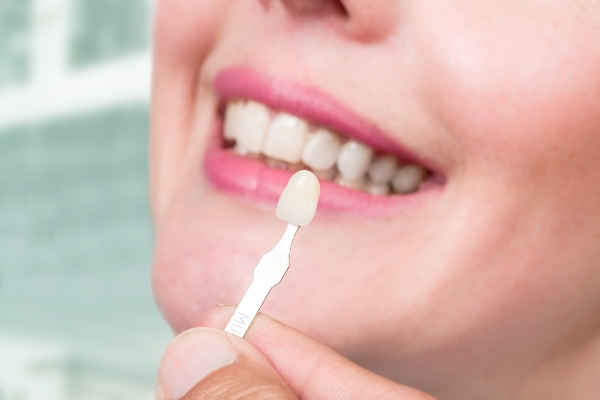
Can Braces Help TMJ?
The temporomandibular joints, also known as
TMJ, connect your lower jawbone to the temporal bones of the skull. The muscles that control the bones are attached to the mandible and allow the jaw to move.
TMJ disorders are the problems that affect the joints and muscles. Some symptoms are jaw pain, difficulty chewing and locking of the joint which makes it difficult to open and close the mouth. There are multiple treatment options for
TMJ disorders that can help you.
How braces can help
TMJ disorders can cause pain and discomfort. Some symptoms can be due to a misaligned jaw or tooth grinding. Braces can help to correct problems such as malocclusion and to deal with bruxism. If the symptoms persist, a person should seek medical advice.
Malocclusion
Some people with TMJ disorders have a feeling of malocclusion. This means that the teeth are not aligned. The teeth should fit properly within the mouth without any spacing or crowding issues. None of the teeth should also be twisted or rotated.The alignment of the teeth affects their ability to perform vital functions such as chewing and biting. Misalignment can cause someone to make unnatural movements when biting. This can be stressful and an inconvenience. In the early stages, individuals usually end up trying to find the right alignment by repeatedly opening and closing the mouth. Due to this overuse, muscles swell. Over time, this can lead to discomfort and other serious complications.Malocclusion of the teeth can affect the TMJ. A dentist can recommend the use of braces to help adjust the position of the teeth and to correct the problem. The treatment will help the teeth to meet correctly. The joint will no longer be under any strain, which will relieve TMJ symptoms.
Tooth grinding
Bruxism is a condition in which a person grinds or clenches the teeth. It can be an indicator that there is something wrong with tooth alignment and bite. Some people who have jaw pain usually clench or grind their teeth, which is why it is considered as a probable cause of TMJ disorders. But there are also many people who grind or clench their teeth habitually but never develop TMJ disorders. Although bruxism as a cause of TMJ problems is not well-proven, treating it is wise. Braces can help with bruxism by straightening teeth and aligning the bite correctly.
Other TMJ treatment options
The stabilization splint or bite guard can provide relief. The appliance is placed over the upper or lower teeth and it prevents contact. It should be used for a short time. If it causes pain a person should stop using it. Pain medications can also provide short-term relief from discomfort.
Contact your dentist
Braces can help to ease the symptoms of TMJ by correcting a misaligned jaw and helping with bruxism. But before you use them it is advisable to consult with your dentist early. Your dentist should help you understand the varied treatment options that can help. You may then decide what works for you.
Request an appointment here: https://www.smilebeautification.com or call Precision Smiles. at (201) 204-1355 for an appointment in our Hackensack office.Check out what others are saying about our services on Yelp: Read our Yelp reviews.
Recent Posts
Dental crowns and veneers can both restore the function and appearance of damaged teeth. That damage can take the form of decay, discoloration, chips or cracks, or a crooked appearance. The main difference is that a crown goes over the whole tooth, whereas a veneer only sits on the front. Beyond that, there are pros…
Seeing your dentist for dental veneers will start with a consultation. This is the right opportunity to find out more about this treatment. Understanding the process means asking the right questions. Here are three questions to ask your dentist before you get your dental veneers.If the patient chooses temporary veneers, these restorations are not attached…
Getting dental veneers can improve your smile. These thin shells can also protect the treated teeth. Your dentist can determine if you can have this treatment. Here are the details to see if you are a candidate for dental veneers.The enamel can thin out because of sweet and acidic foods and drinks. Hard brushing can…
If you are tired of feeling self-conscious about your smile, then dental veneers may be the solution you are looking for. They can help repair chipped, stained, or misaligned teeth. This blog guide will walk you through everything you need to get dental veneers.Dental veneers are thin, custom-made shells that a dentist places over the…


